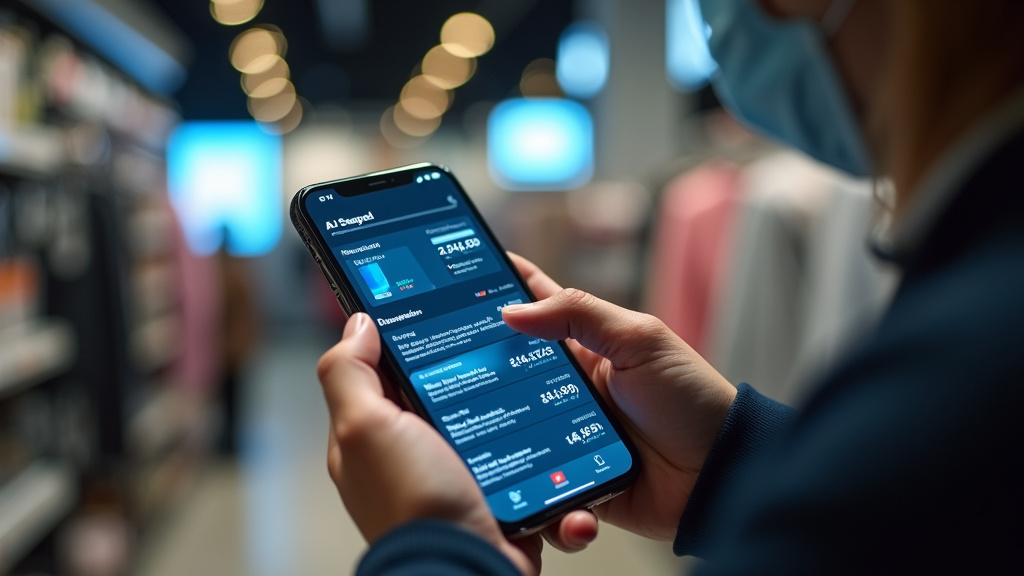LVMH Announces Landmark AI Investment for Sustainable Luxury Supply Chains
Paris, France – January 18, 2025 – LVMH Global Group, the world’s leading luxury conglomerate encompassing renowned Maisons across fashion, jewelry, watches, wine & spirits, and selective retailing, today announced a significant strategic investment aimed at profoundly transforming its global supply chain operations through the comprehensive integration of advanced artificial intelligence technologies. The announcement, made from the company’s headquarters, signals a major commitment from the luxury giant towards achieving unprecedented levels of supply chain transparency and sustainability across its vast portfolio of brands. This ambitious undertaking has been officially dubbed the “Aether Initiative.”
The “Aether Initiative” represents a forward-thinking response to evolving global demands, encompassing both increasing consumer awareness regarding ethical and environmental sourcing, and a burgeoning landscape of stringent regulatory requirements across key markets in the European Union and North America. By leveraging cutting-edge AI, LVMH aims to set a new standard for responsible sourcing and production in the luxury sector.
The “Aether Initiative”: A Deep Dive into Transparency and Sustainability
The “Aether Initiative” is envisioned as a fundamental restructuring of how LVMH sources raw materials, manages production processes, and tracks goods through its complex global network. The core objective, as articulated by the group, is to establish a robust, verifiable system that provides end-to-end visibility and traceability across its supply networks. This includes everything from the initial raw material source to the final product reaching the customer, ensuring authenticity, ethical practice, and environmental responsibility at every step.
The initiative’s timeline sets a clear target: the comprehensive deployment of advanced AI systems is planned to be fully operational across all relevant sourcing and production processes by the year 2028. This ambitious phased rollout underscores the complexity of integrating such sophisticated technology across a diverse portfolio of Maisons, each with unique materials, artisanal techniques, and supply chain structures. The goal is to move beyond conventional tracking methods towards a dynamic, intelligent system capable of real-time monitoring, data analysis, and predictive insights.
Leveraging Artificial Intelligence for Enhanced Supply Chain Management
The heart of the “Aether Initiative” lies in the strategic application of cutting-edge artificial intelligence. While specific AI technologies were not exhaustively detailed in the initial announcement, the scope of the initiative suggests the potential integration of various AI disciplines. This likely includes machine learning algorithms for analyzing vast datasets generated at every supply chain stage, identifying patterns, and predicting potential issues; computer vision for verifying the quality and characteristics of materials; natural language processing for digitizing and reviewing complex documentation; and potentially other AI-powered tools for optimizing logistics, managing inventory, and assessing risk. These systems are intended to analyze data from initial cultivation or extraction through processing, manufacturing, quality control, and transit. The AI will work to identify anomalies, trace the origin and journey of materials with high precision, assess environmental impacts associated with specific processes, and optimize operations for greater efficiency and reduced environmental footprint. This level of data-driven insight is expected to provide LVMH with an unprecedented ability to understand, control, and improve its environmental and ethical performance. The successful implementation by 2028 would position LVMH at the forefront of technological adoption within the luxury sector for supply chain management and sustainability verification.
Tracking Exotic Materials: A Focus on Granular Traceability
A key challenge and critical focus area highlighted by the “Aether Initiative” is the tracking of highly specific and often rare raw materials that are integral to luxury production. The announcement specifically mentioned materials such as rare silks from Uzbekistan and specialized leathers from Argentina. These materials are sourced through complex, multi-tier international supply chains that can be particularly difficult to fully map, verify, and monitor using traditional methods. The AI systems are specifically designed to bring granular traceability to these challenging areas.
For instance, tracking rare silk from Uzbekistan would involve verifying its specific origin – potentially down to the region or even farm – monitoring the farming practices used (such as mulberry cultivation methods and silkworm welfare), documenting the reeling and processing methods, and tracking its journey through various intermediaries to the manufacturing site. Similarly, tracing specialized leathers from Argentina would require rigorous verification of the source farms (ensuring ethical animal husbandry, land management practices, and adherence to deforestation policies), monitoring the tanning processes (including chemical use, water consumption, and waste disposal), and maintaining a verifiable chain of custody throughout the production pipeline. By using AI to connect, analyze, and validate data points across this entire intricate journey, LVMH aims to build a robust, verified chain of custody, assuring both the authenticity and the sustainability credentials for these valuable and sensitive inputs.
Ambitious Environmental Targets Supported by Data
Complementing the transparency and traceability goals, the “Aether Initiative” is tightly coupled with ambitious corporate sustainability objectives. According to LVMH CEO Bernard Arnault, the initiative is designed to contribute directly and substantially to a target of achieving a verifiable 25% reduction in environmental footprint across key product lines. This significant reduction is targeted to be realized by the year 2030. The focus on “key product lines” suggests a strategic approach, prioritizing those areas within the LVMH portfolio with the most significant environmental impact or highest consumer and stakeholder visibility.
The term “verifiable” is crucial, indicating that the AI systems are intended not just for internal operational improvement but also to generate auditable, data-backed evidence that can substantiate these environmental claims to regulators, consumers, investors, and other stakeholders. The 25% reduction target covers a broad scope of environmental factors likely associated with material sourcing, production processes, and logistics, potentially including metrics such as carbon emissions, water usage, waste generation, energy consumption, and responsible land use.
Responding Proactively to Regulatory Pressures
A significant driver behind the timing and scope of the “Aether Initiative” is the rapidly evolving global regulatory landscape concerning corporate responsibility and supply chain due diligence. LVMH explicitly stated that the investment is being made, in part, in response to increasing regulatory demands in the EU and North America. Both regions are implementing and proposing stricter rules regarding corporate due diligence obligations, supply chain transparency, environmental reporting, and mandatory sustainability information for products. Examples include proposed EU directives on corporate sustainability due diligence (CSDDD), regulations on deforestation-free products, battery regulations requiring traceability, and the development of digital product passports, alongside evolving requirements in North America concerning responsible sourcing, conflict minerals, forced labor, and environmental claims.
By proactively building an AI-powered system capable of collecting, analyzing, and reporting detailed, verifiable supply chain data, LVMH is positioning itself not just to comply with current regulations but also to anticipate and adapt swiftly to future requirements. This strategic foresight aims to mitigate potential compliance risks, avoid penalties, and potentially gain a competitive advantage in markets where regulatory scrutiny is high and consumer demand for ethically and sustainably sourced products is growing.
Industry Context and Future Implications
LVMH’s announcement of the “Aether Initiative” sets a significant precedent for the luxury industry and potentially for other sectors grappling with complex global supply chains. While many companies have made commitments to sustainability and traceability, an investment of this scale specifically focused on comprehensive AI deployment across the entire supply chain signals a fundamental step change in the approach to managing environmental and ethical impacts. The initiative acknowledges that traditional, often manual processes and fragmented data systems are no longer adequate for managing the inherent complexity and meeting the increasing demands placed upon modern luxury supply chains.
By leveraging advanced AI, LVMH is aiming for a level of control, verification, and optimization previously unattainable. The success of the “Aether Initiative” by its 2028 deployment target could serve as a blueprint and catalyst for other luxury houses and indeed, companies across various sectors facing similar supply chain challenges. It underscores the growing recognition that sophisticated technology, particularly artificial intelligence, will play a critical and enabling role in allowing companies to meet ambitious sustainability targets, ensure ethical practices, and navigate an increasingly complex and scrutinized global business environment. The specific focus on tracing materials like Uzbek silk and Argentinian leather also highlights the industry’s deep need to ensure responsible sourcing even for its most exclusive, geographically diverse, and challenging-to-track inputs. This substantial investment is a clear statement from LVMH that sustainability, ethical practice, and verifiable transparency are becoming inextricably linked with the definition and expectation of luxury itself in the 21st century.





